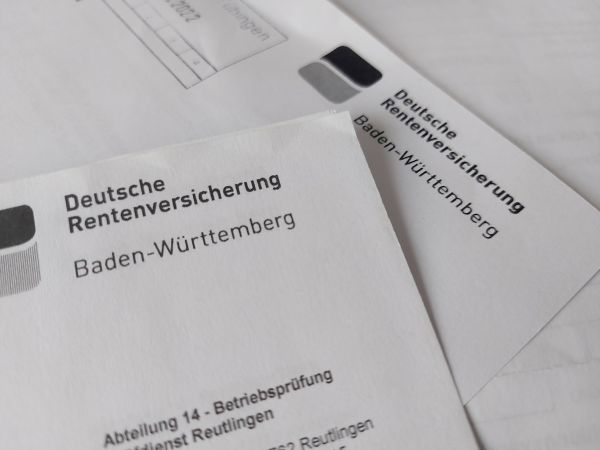In Germany, all employees except civil servants pay a contribution to the statutory pension insurance fund out of their wages. From this—if they have paid in long enough—they receive a pension every month in old age. The statutory pension insurance is an important part of the German social system. Who gets how much can only be clarified in individual cases. From the age of 27, the German pension insurance sends out a letter every year stating, among other things, how much the pension will be.
What does the pension insurance pay?
The pension insurance pays a pension in old age to all those who have paid in at least five years and have completed a waiting period. In this case, however, it is very low, because in principle the pension increases with the amount of contributions paid. Anyone who becomes incapacitated due to an accident or illness receives a pension due to reduced earning capacity. Prior to this, the pension insurance also finances rehabilitation services for insured persons in order to become fit for work again. If one partner in a family dies, the other spouse receives a widow’s or widower’s pension and children receive an orphan’s pension.
What is the current contribution?
Currently, the pension contribution is 18.6 percent of gross income. Half of this is paid by the employer. Contributions are compulsory. With one exception: in the case of mini-jobs, employees can decide whether they want to pay into the pension insurance. However, the employer pays a contribution in any case.
How much money do you get in old age?
That depends on how well one has earned. The average pension in 2021 was 1179 euros for men, and much lower for women at 741 euros. Health insurance and taxes are still deducted from the pension. Pensions increase every year at the same rate as wages and salaries. On average, the old-age pension amounts to about 48 percent of the last net income.
How long do you have to work before you get a pension?
The earliest you can get a pension is after 35 years of insurance and when you reach the age of 63. However, this is subject to deductions, as the retirement age is currently rising to 67. This means that you can only retire earlier if you give up some of your money. For every month that one retires earlier, 0.3 percent is permanently deducted. Those who have been insured for a particularly long time can retire without deductions after 45 years, starting at the current age of 64. In this case, the age will rise to 65 in the next few years.
What all counts for the pension?
It is not only the time you have worked that counts towards your pension: Periods of education, unemployment or further training are also counted—according to sometimes complicated procedures.
How do children affect the pension later on?
Child-rearing periods are important: For each child born after 1992, three years are credited to the mother’s pension insurance. In the case of refugees, whether they receive entitlements depends on their residence status, as the German Pension Insurance confirmed in response to a query from tünews INTERNATIONAL. Refugees from Syria, for example, who live here with their children as recognized refugees, meet the requirements because they have their “habitual residence” in Germany. Child-rearing periods are then taken into account from the time of entry into Germany. If the children still live in their country of origin, this does not count. In the case of Ukrainian refugees living in Germany on the basis of Section 24, child-raising periods are only recognized when parents and children receive a permanent residence title. Child-raising periods also count toward the minimum insurance period of five years. One year of child-raising time increases the pension by 34 euros per month.
The nearest pension insurance advice center is in Reutlingen:
Phone: 0 7121/ 2037-0
regio.rt@drv-bw.de
https://www.deutsche-rentenversicherung.de/DRV/DE/Home/home_node.html
tun23071903
Die gesetzliche Rentenversicherung ist ein wichtiger Teil des deutschen Sozialsystems. Foto: tünews INTERNATIONAL / Linda Kreuzer.
002061




